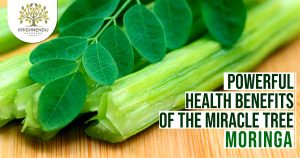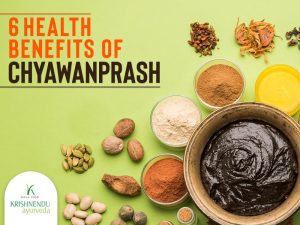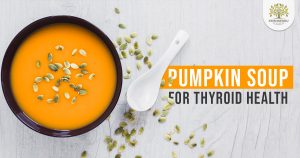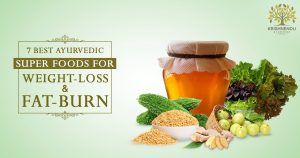Blog

4 Ayurvedic Ways to Beat the Heat this Summer
It’s March and the temperature both inside and outside your home is climbing up. It’s the season when there’s skin eruptions, sweat and dehydration, grumpiness, daily tantrums and everything else. With the bright and scorching sun draining our body, it is vital to prep our body to resist the heat and also keep Pitta dosha in control. With the first heat waves of summer rolling over us, we start experiencing the effects of excess Pitta in our body. And this can be understood with signs like heartburn, excessive body heat and sweat, rashes, excess stomach acidity, acne and so on. By practicing the following Ayurveda tips, keep the imbalance of Pitta doshas at bay. Pitta Pacifying Food The food you eat always determines your body conditions, especially during the summer season when it needs extra care and caution. Eat cooling or pitta pacifying foods like green leafy vegetables, cucumber, broccoli, watermelon, pear and apples. Being rich in water content, these food items help in keeping the body hydrated. Avoid food that heats up your body like citrus fruits, beetroots, carrots and dark meat. Also, limit the intake of garlic, chilli, salted cheese and instead consume more salads with cilantro, parsley added to it for 2. Stay hydrated With the intense summer heat, it is vital to keep your body hydrated. Make sure to drink plenty of water or at least 12 glasses of water every day. Also, having a glass of water on an empty stomach every day morning makes you stay fresh throughout the day. Drinking a glass of refreshing fresh juice or tender coconut water is recommended to cool your body. But avoid having ice cold drinks as it inhibits digestion and creates toxins or ama. 3. Cooling oils Use sandalwood, jasmine and coconut oils, for their cooling properties and soothing aroma would help in beating the heat this summer. Especially at night, when it seems to be difficult to catch a good night’s sleep, these essential oils help in pacifying pitta. Dab one drop of sandalwood oil on your eyebrow center, temples, hollow of the throat, wrists and belly button to pacify pitta with its sweet fragrance charging up the aura. 4. Practice body cooling exercises and yogasanas Indulge in swimming or take evening strolls when the night air is cool and refreshing. Walking in the moonlight soothes Pitta-aggravated mind and helps in cutting off those emotions for tantrums. Shift your workout timings to early morning, considered to be the coolest time of the day. Pushing it to late night or evening is not recommended as your body gets heated up and would prove to be harmful. Practicing certain yoga poses like Sheethali daily for 10 mins will calm down the mind and body. Other yoga poses include Anjaneyasana, Vriksasana, Baddha Konasana and Savasana can be practiced daily.




Powerful Health Benefits of the Miracle Tree: Moringa
Ever known a tree whose each and every part is extremely nutritious and nourishing? Meet Moringa oleifera or popularly known as the Miracle Tree whose seeds, flowers, fruit and even bark is used for nutritional and pharmacological properties. The Tree embraces an unbelievable 90 plus nutrients and more than 46 antioxidants. It is a widely used Ayurvedic medicine since long. Some incredible facts – A single serving of Moringa is approximately equal to 4 times the amount of calcium for the same quantity of milk; it has double the protein content and triple the amount of potassium in a banana, plenty of Vitamin C than found in 7 oranges; it has an incredible 25 times more Iron than Spinach and 4 times more Vitamin A than carrots. Though Moringa is highly nutritious it should only be consumed in moderate quantity to get optimum health benefits. Powerful benefits and medicinal uses of different parts of moringa tree are as follows: 1.Leaves Moringa leaves are one of the most powerful natural medicines that are rich in fibre, proteins, minerals and amino acids. Moringa leaves when consumed in moderate quantity helps in treating heart burn, joint pain and arthritis, diarrhoea, eye and ear infections. Due to its fat burning and slimming properties it can be consumed to shed those extra pounds as well. Health Benefits Normalizes blood sugar levels Improves digestion Controls blood pressure Strengthens immune system Enhances skin health Good for eye health Increased mental clarity Stimulates hair growth Remedies People suffering from Asthma are advised to have soup made by boiling a teaspoon of moringa leaves in 2 cups of water with salt, crushed black pepper and a few drops of lemon juice. To help relieve from cold, boil Moringa leaves in water and inhale its vapours. To reduce Blood pressure – soak a handful of drumstick leaves in warm water. After 30 mins drink this water. For Diabetes – take few drumstick leaves, wash and clean them to extract their juice. Now take 1/4th cup of this juice and drink it on empty stomach every morning. This would keep your sugar levels under control. For Anti-ageing – Drinking tea made of drumstick leaves or incorporating leaves in your regular diet rejuvenates skin and fights the onset of fine lines and wrinkles. 2.Seeds Obtained from the pods of the Moringa Oleifera or the drumstick tree, Moringa seeds come with multitude of health benefits. Health Benefits Regulate blood sugar levels Reduces joint pain Lowers cholesterol Promotes heart health Good for skin health High in fiber Improves sleep Moringa seeds can be eaten along with meals or enjoyed as a snack in the evening. Whichever way you prefer, always make sure to consume just a few seeds at a time. 3.Flowers Considered as a delicacy around the world, Moringa Flowers come with several health benefits. They are rich sources of various nutriments including calcium and potassium. Health Benefits Cures common cold Treats urinary tract infections Aids weight loss Strengthens liver health Good for digestion Boosts immunity For the benefits, it is recommended to drink moringa flower tea daily in moderate quantity. 4.Roots The roots of the miracle tree embrace high nutrient quantities and have been used since long for their therapeutic properties. Health Benefits Relieves kidney and lower backpain Treats digestion problems Anti-ulcer Expectorant for lung diseases Treats articular and rheumatism pain 5.Bark Similar to the roots, the bark of the moringa tree has antibiotic properties. It is widely used to treat everything from sexually transmitted diseases to gout and arthritis. Health benefits Improves digestion Treats Arthritis and gout Used for circulatory and cardiac problems Anti-inflammatory There are a multitude of ways to add moringa in your daily diet and relish its incredible benefits. You can either use its leaves or flowers to cook or crush, store and use it as powder for months. Moringa leaves can be used as a replacement for spinach in many recipes as well. Having Moringa flower tea is also a good way to add it to your daily diet. However, always make sure that it’s only consumed in moderate quantity to get optimum health benefits.




6 Health Benefits of Chyawanprash
Chyawanprash is an Ayurvedic herb formulation and health supplement that can be consumed by people of any age group. It is a nourishing, anabolic preparation that is heating, heavy and oily. The ingredients for this jam-like preparation include herbs and plant extracts that have a medicinal property like Amla, Ashwagandha, Neem, Pippali, Tulsi, Saffron, Cardamom, Arjun, Brahmi, Ghee, etc. The following are the health benefits offered by Chyawanprash. 1) Strengthens immunity One of the major benefits of chyawanprash is that it keeps the body immune to seasonal infections caused by the variations in the weather. It is regarded that the primary action of chyawanprash is to bolster the immune system and to support the body’s natural ability to produce hemoglobin and white blood cells. Taking chyawanprash daily helps the body fight fungal and bacterial infections also. 2)Enhances digestion Chyawanprash contains five of the six tastes that Ayurveda recommends to initiate healthy digestion. It also helps rekindle Agni, the digestive fire without aggravating pitta. The cinnamon and amla in the preparation contain carminative properties which help reduce flatulence. Supporting regular elimination and fostering healthy blood glucose and cholesterol levels are other benefits which support gastric health. 3)Fights respiratory issues The herbal ingredients in the preparation are beneficial for people suffering from long term and chronic respiratory ailments. It also aids lung functioning to an extent. 4) Helps purify blood Owing to a hectic lifestyle combined with excess consumption of junk foods and lack of sleep, toxins tend to get accumulated in the body which can lead to the onset of health issues and ailments. This also hampers the blood purification process in the body. Eating chyawanprash aids in purification of blood and in the elimination of toxic elements from the body. 5) Sharpens memory and encourages brain function Rich in herbs that aid in boosting brain functions and sharpening memory, chywanprash is highly beneficial to increase focus and concentration especially for studying children. 6) Reproductive health Chyawanprash is recommended for revitalizing and nourishing the reproductive tissues. It is also used as a tonic to replenish the reproductive system and to address problems related to reproductive health. The herbs present in the preparation is also beneficial for menstrual health of women.




6 Ayurvedic Home-Remedies to Get Rid of Sore Throat
An important meeting in the morning or you’re heading to your favorite place for a much-awaited holiday and you wake up to find that you have a sore throat and you can barely swallow anything. Terrible isn’t it? Well, sore throats are common and most annoying. Here are few effective Ayurvedic remedies to fight the infection and soothe the sore throat – Gargle with Saltwater One of the oldest and the most effective remedies for sore throat recommended by Ayurveda is gargling twice or thrice a day with salt water. Salt has amazing anti-bacterial properties and it will help rinse away the bacteria and reduce the inflammation. Honey Known for its anti-inflammatory and antimicrobial properties, Ayurveda recommends Honey as an effective remedy for sore throat. A teaspoon of honey before bedtime or a decoction of ginger, honey and a squeeze of lime mixed with warm water is very effective in treating sore throat. Garlic A well-known herb that’s been long used in Ayurveda, Garlic is excellent for treating a sore throat or respiratory tract infections. It encompasses a compound called allicin that can kill the bacteria and reduce the infection. Take a clove of garlic and place it between your cheek and teeth and suck on it. Juices of the herb will do magic to your sore throat. Licorice Root Tea Licorice is a famous herb in Ayurveda. Having Licorice tea (boil 1 teaspoon of Licorice root to two cups of water for about five to ten minutes) for two or three times a day will help in reducing sore throat. Ginger Gingerols, one of the main components in ginger herb, comprises of analgesic or painkilling properties. A cup of ginger tea not only reduces the throat pain but also helps in decreasing mucus. Turmeric milk Another effective home remedy recommended by Ayurveda for throat infection is having a glass of turmeric milk. It is not only known to treat a sore throat but also helps in reducing cold and coughs. Though the above-mentioned remedies are generally effective, meet an Ayurvedic Physician if your sore throat lasts for more than 3 to 4 days.




Pumpkin Soup for Thyroid Health
Are you following a strict, bland diet due to your thyroid condition? Well, there are wonder foods that are equally healthy yet tasty and pumpkin is one among them. Pumpkin, especially its seeds, is a rich source of zinc that can be consumed to balance out those zinc deficiencies in your body causing thyroid. Incorporating pumpkin seeds in diet is recommended for patients suffering from hypothyroidism as it contains tyrosine, an amino acid vital for the proper functioning of thyroid gland. From smoothies to salads and burger patties to pies, pumpkins make an excellent choice for maintaining your thyroid health and also stimulate weight loss. Try this easy pumpkin soup recipe: (serves 6) Ingredients: 1 tablespoon vegetable oil or olive oil 1 onion, chopped 600gm pumpkin 1 teaspoon ground ginger ¼ teaspoon chilli flakes 1.2 litres vegetable stock 1 tablespoon tomato puree Salt and black pepper, as required Method: Heat oil in a pan and sauté onions for 5 minutes. Add pumpkin, ginger, chilli flakes, salt and pepper to it and cook for another 5 minutes. Pour the stock and tomato puree. Bring it to a boil. Cover and simmer for 20 minutes or until pumpkin is soft. Using a food processor blend it until smooth. Garnish with roasted pumpkin seeds. Season and enjoy!




7 Best Ayurvedic Super Foods for Weight-loss and Fat-burn
According to Ayurveda, following a Kapha dosha balancing diet will help in accelerating the weight loss. Along with the diet its recommended to practice active lifestyle like yoga and walking for at least 1 hour every morning on empty stomach for fat-burn. Here are few Ayurvedic superfoods that would help in weight-loss – Bitter gourd Bitter melon or popularly known as bitter gourd can help reducing the weight of white adipose tissue and visceral fat. It can also reduce triglycerides, lipids that contribute towards additional weight gain. Having a glass of bitter gourd juice on empty stomach in the morning is recommended. Bitter gourd also helps in lowering blood sugar levels. Honey According to Ayurveda, honey is a wonderful alternative for sugar/other sweeteners and also its Kapha pacifying. Honey helps in lowering body weight and leptin levels – a hormone that causes weight gain. A glass of lukewarm lemon water with honey in the morning is considered as good ayurveda treatment for weight-loss. Amla Amla is considered the best Ayurvedic super food owing to its incredible therapeutic properties. It is great for boosting digestion, and a healthy digestive system is the key to weight loss. Having a glass of fibre-rich Amla juice daily is recommended. Turmeric Turmeric, the most powerful herb of Ayurveda helps with digestion and weight loss by not allowing fat accumulation. The popular Ayurvedic Golden Milk with turmeric is not only therapeutic but is also a good recipe for weight loss. Ginger Ginger is an ideal Ayurvedic super food for Kapha body types. It aids in weight loss by lowering triglycerides and lipids. The superfood also helps in lowering blood sugar levels and enhances the action of insulin. Having a glass of ginger tea daily is recommended. Green leafy vegetables Green leafy vegetables are the best superfoods in Ayurveda for balancing Kapha dosha and helping in weight loss. Adding them to your regular diet will completely transform your health. Trying Spinach, Kale, Parsley leaves etc. for lunch are recommended. Even salads with leafy greens offer less calories and is ideal for a weight-loss diet. Moong dal One of the most popular Ayurvedic superfoods for weight loss is a nice bowl of Moong Dal Soup. Moong beans are extremely nutritious legumes encompassing fibre, proteins, folic acid, magnesium, B vitamins, iron and zinc. It’s extremely strong in fibre and protein content making you feel full eating less. Above mentioned are the top 7 superfoods for weight-loss. However, it’s recommended to indulge in detoxifying Ayurvedic Panchakarma treatments with the above foods for an ideal weight-loss journey. This will not only help remove the toxins but also aid digestion and improve your energy. For more details on Ayurvedic Panchakarma treatments – Click Here

